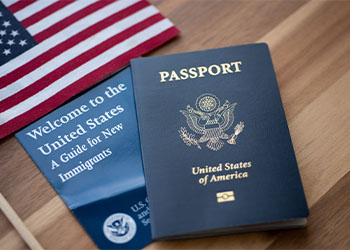Immigration FAQs
Oct. 24, 2023
 Immigration is a complex process, filled with numerous procedures, legalities, and paperwork. The path to obtaining U.S. citizenship or a green card can be confusing, especially for those unfamiliar with the legal terminology and processes involved.
Immigration is a complex process, filled with numerous procedures, legalities, and paperwork. The path to obtaining U.S. citizenship or a green card can be confusing, especially for those unfamiliar with the legal terminology and processes involved.
From navigating through visa applications to adhering to the ever-evolving immigration policies, running into challenges is not uncommon. That’s why seeking guidance from experienced professionals can significantly alleviate your burden and raise the chances of a successful outcome.
Consulting with a knowledgeable and compassionate attorney, such as William J. Quirk, Esq., can make all the difference. His firm William J. Quirk, Esq., LLC provides comprehensive immigration guidance and legal services to clients in and around Hackensack, New Jersey, as well as the Clifton, Paterson, and West New York areas.
Frequently Asked Questions About Immigration
This article aims to clarify some of the most frequently asked questions about immigration, providing clear and concise answers to guide you through your journey.
1. What is the difference between a green card and a visa?
A visa is a document that allows foreign nationals to enter the U.S. for a specific period and purpose, such as tourism, study, or temporary work. A green card, on the other hand, grants the holder lawful permanent residence status in the U.S., allowing them to live and work indefinitely.
2. How can I help my family member gain citizenship?
You can sponsor certain family members for a green card if you are a U.S. citizen or a green card holder yourself. However, the process varies depending on your relationship to the person you're sponsoring and whether you are a citizen or a permanent resident.
3. Can I become a citizen if I entered the country illegally?
Generally, entering the U.S. illegally makes it more challenging to obtain citizenship. However, there may be exceptions or forms of relief available depending on individual circumstances. It's advisable to consult with an immigration attorney in such cases.
4. What is the difference between lawful permanent residence and conditional permanent residence?
Lawful Permanent Residence (LPR) status allows you to live and work permanently in the U.S. without conditions. Conditional Permanent Residence, however, is granted for two years and is subject to removal if specific conditions are not met.
5. Why would a green card application be denied?
There are several reasons why a green card application could be denied, including criminal history, health issues, insufficient financial resources, or previous immigration violations.
6. Can I live in or work in the U.S. while waiting for my green card?
In most cases, you can legally live in the U.S. while your green card application is being processed. However, whether you can work or not depends on your current immigration status and the type of green card you are applying for.
7. How long after my marriage can I apply for a green card?
There's no waiting period to apply for a green card after marriage. As soon as you are legally married, you can start the application process.
8. What documents do I need for a green card or visa?
The required documents vary depending on the type of visa or green card you're applying for. Generally, you'll need proof of identity, proof of eligibility for the visa or green card category, and any additional documents requested by USCIS.
9. How long does it take to get a green card/visa?
The processing time for a green card or visa varies widely based on factors like the type of application, the workload at the USCIS office handling your case, and your individual circumstances.
10. How should I prepare for my green card interview?
Preparation for a green card interview should include reviewing your application and supporting documents, preparing for potential questions about your background and eligibility, and bringing all necessary paperwork to the interview.
11. If my children were born in the U.S. but I came into the country illegally, are my children citizens?
Yes, under the 14th Amendment of the U.S. Constitution, all persons born in the United States are citizens, regardless of the immigration status of their parents.
This article is designed to address and clarify the most frequently asked questions about immigration, but remember, it’s in your best interest to consult an immigration attorney about the specifics of your situation. Whether you're seeking information about visa applications, immigration policies, or the process itself, the immigration lawyer at William J. Quirk, Esq., LLC can give you the answers you need.
Here to Simplify the Process
It's no secret that navigating the immigration process can be daunting. However, with the right information and guidance, you can understand your options and make informed decisions. Reach out to the immigration attorney at William J. Quirk, Esq., LLC if you have specific questions or concerns. He represents clients in Hackensack, New Jersey, as well as Clifton, Paterson, and across West New York.
